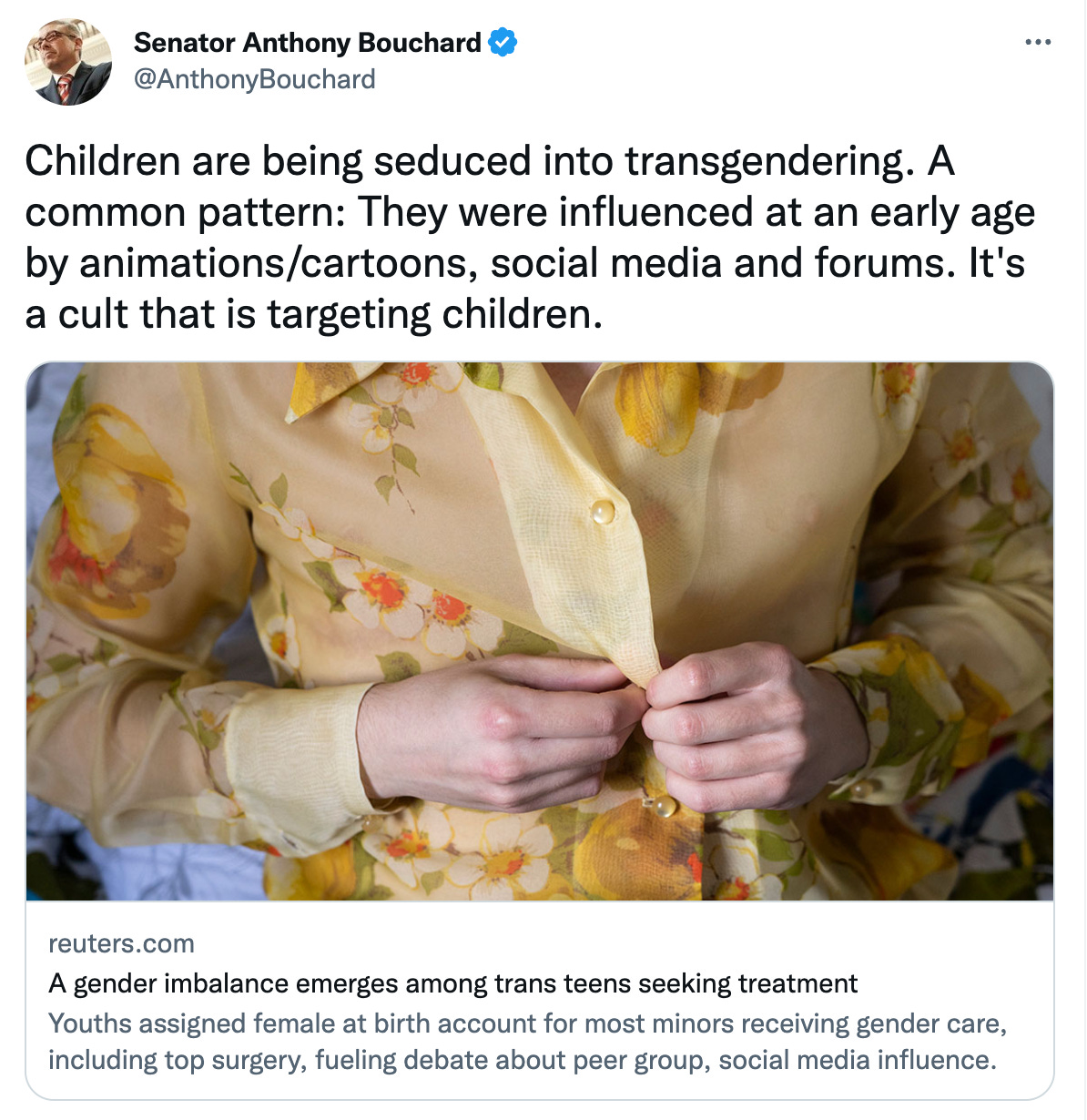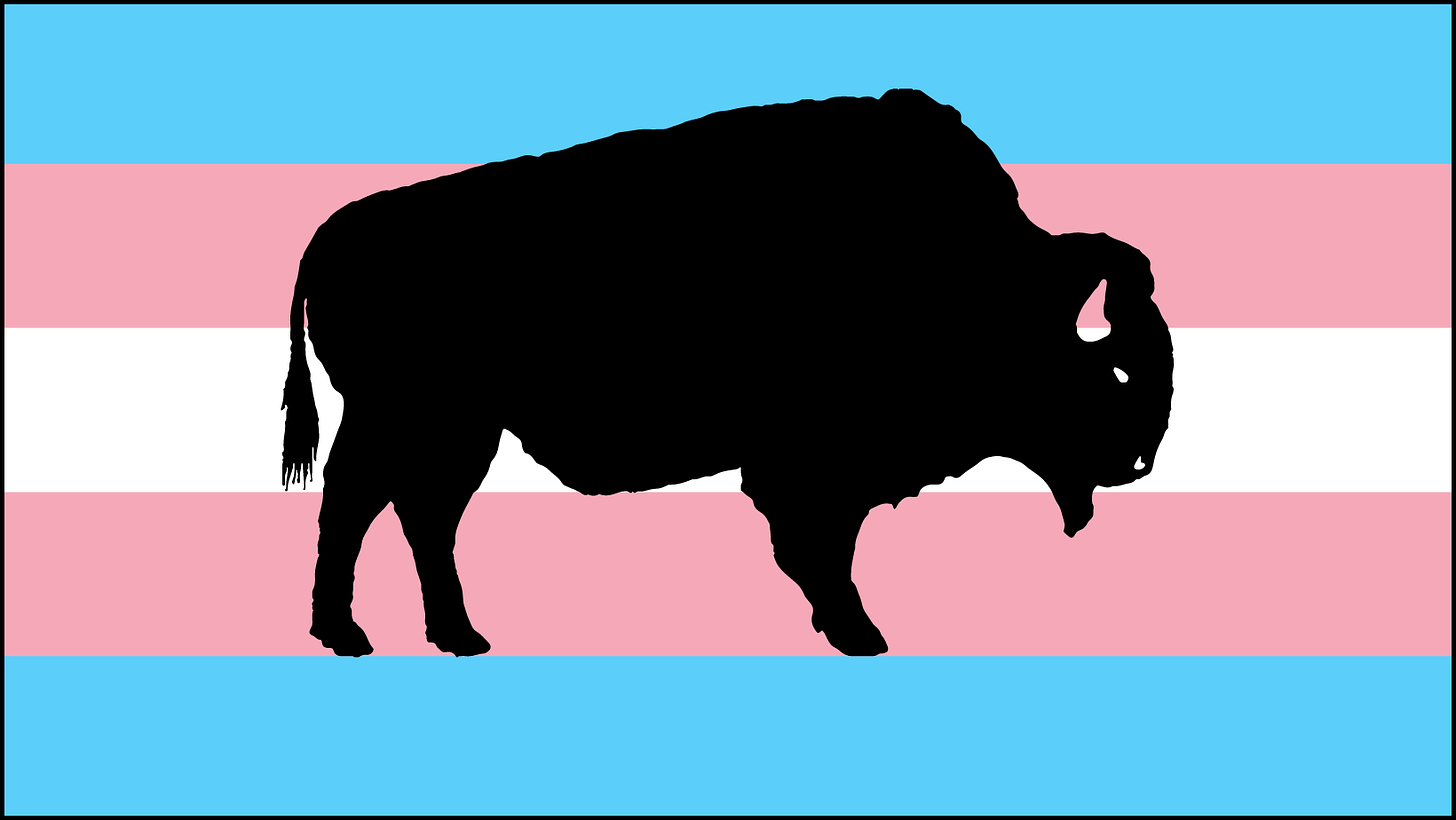“What is a Woman Act” dead, but attacks on trans healthcare and privacy remain
The Senate advanced three anti-trans bills, while the House killed five. However, each time lawmakers actually voted on an anti-trans proposal, that proposal won majority support.
During the first week of the 2024 Budget Session — the only week during which new bills could be introduced — the Wyoming Legislature narrowed its focus.
And that narrowing focus tempered the deluge of anti-trans bills filed this year.
Three such bills remain in play; the rest were crushed by time constraints or by failing to achieve the two-thirds vote required for introduction.
In the House, representatives failed to advance any of the five clearly anti-trans bills filed in their chamber. They advanced just one bill that could have implications for transgender and nonbinary youth: a bill asserting greater parental control over children in school settings. However, the scope of that bill is larger than matters of gender identity.
In the Senate, legislators advanced all three anti-trans proposals originating in their chamber. These included a parental rights bill that could require schools to out LGBTQ+ students to unsupportive families and a pair of bills aimed at curtailing or outlawing gender-affirming care for minors.
In the House, anti-trans proposals didn’t get very far. In the Senate, they sailed through. But the difference between the chambers should not be read as one supporting LGBTQ+ rights and the other rejecting them.
Indeed, whether in the House or the Senate, each time lawmakers were allowed to vote on an anti-trans bill, a majority voted to advance the proposal — whether it was a ban on gender-affirming care, a parental rights bill, or an inaccurate declaration that sex and gender are one and the same.
In the House, where five anti-trans proposals died, three of those bills never got a vote, failing to be considered before the Friday deadline for introduction. The other two House bills received majority support, but not the two-thirds majority support necessary to advance a non-budget bill during a budget session.
Should the three anti-trans Senate proposals currently advancing through their chamber of origin head to the House, they will likely find a comfortable margin of support among the representatives there — and those bills will have a clear path to the governor’s desk.
Advanced: SF9 - Parental rights in education-1
Chamber of origin: Senate
Introduction vote: 29-2
Current status: Awaiting third reading in the Senate
This bill would require schools to notify parents of “a change in the student’s physical, mental or emotional health or well‑being and the school’s ability to provide a safe and supportive learning environment for the student.”
This has been interrupted by many — both for and against the bill — as requiring schools to “out” gay, transgender or gender-nonconforming youth to their parents.
Senate File 9 was introduced on the first day of the session with overwhelming support. It was considered by the Senate Education Committee two days later, advancing again with a 4-1 vote. Albany County Sen. Chris Rothfuss (SD-9) cast the sole dissenting committee vote.
The bill is scheduled for a third reading on the Senate floor today.
Advanced: SF98 - Statute of limitations-medical procedures on minors
Chamber of origin: Senate
Introduction vote: 27-4
Current status: Awaiting consideration by the Senate Labor Committee
This bill would make it easier for young people (under the age of 21) to sue doctors for “an act, error or omission against a minor in the provision of gender transition services.”
Sen. Anthony Bouchard (SD-6) is continuing a crusade to outlaw or otherwise halt gender-affirming care. He has expressed in the past that he believes young people are being pressured into transitioning only to later regret it. This is despite all the best available evidence pointing to high rates of satisfaction among those who have transitioned. Almost everyone who surgically transitions — a major medical decision only undertaken after years of consultation and counseling — reports lower rates of depression and higher rates of life satisfaction. But Bouchard has paid out-of-state “detransitioners” to testify in favor of his bills. These detransitioners are members of the extreme minority of people who do regret their decision to surgically transition.
Senate File 98 was introduced Friday, winning a 27-4 vote on the Senate floor. It’s now on the Senate Labor Committee’s docket though it does not appear on the list of bills that committee will discuss today.

Advanced: SF99 - Chloe's law-children gender change prohibition
Chamber of origin: Senate
Introduction vote: 25-5-1
Current status: Awaiting consideration by the Senate Labor Committee
This bill would outlaw multiple forms of gender-affirming care, such as hormone therapy and surgery, for transgender youth. While most childhood gender-affirming care does not involve surgery, it does often include hormone therapy during the critical teenage years.
The bill makes exceptions for cisgender children seeking similar treatments for other conditions, such as precocious puberty. Rather than classify gender-affirming care as a felony — as bills in previous years have tried — SF99 would strip doctors or other medical professionals of their licenses for providing gender-affirming care.
Sen. Bouchard, the bill’s sponsor, attempted the same bill last year. Last year’s bill sailed through the Senate but faced steeper hurdles in the House. It died when the House missed its own deadline to take a vote.
Senate File 99 was introduced Friday, winning a 25-5 vote (with one member excused) on the Senate floor. Like Senate File 98, it’s now on the Senate Labor Committee’s docket.
Killed: HB50 - What is a Woman Act
Chamber of origin: House
Introduction vote: 37-24-1
Current status: Dead
This bill would have declared in state law that both sex and gender are determined by either sex organs or chromosomes — erroneously equating two easily distinguishable concepts. The bill is part of a national movement to pass similar bills in state legislatures across the country.
House Bill 50 received majority support in the House, but fell a few votes short of the two-thirds majority it needed to survive introduction.

Killed: HB63 - Sex and gender changes for children-prohibited
Chamber of origin: House
Introduction vote: 33-28-1
Current status: Dead
While Bouchard’s gender-affirming care ban takes aim at a broader range of treatments, this bill took aim solely at surgery and sought to prohibit only that particular element of gender-affirming care. Like Bouchard’s bill, it made exceptions for cisgender children with special conditions, such as precocious puberty.
House Bill 63 received majority support in the House, but fell far short of the two-thirds majority it needed to survive introduction.




